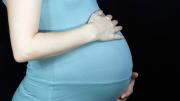a new study has found early proof that stem cells taken from a women’s ovaries can be used to create new eggs, a potentially groundbreaking discovery for fertility treatments that could upend a 60-year belief that women are born with all the eggs they’ll ever have.
“What this means is that little bank account of eggs that a little girl gets at birth is in fact open to continued deposits,” Jonathan Tilly, the study's lead author, said in a video released to the media (see below).
In a study published in Nature Medicine, Tilly, professor of obstetrics, gynecology, and reproductive biology and director of the Vincent Center for Reproductive Biology at the Harvard-affiliated Massachusetts General Hospital, found that stem cells taken from donated, frozen ovaries could produce human egg cells, or oocytes.
“The primary objective of the current study was to prove that oocyte-producing stem cells do in fact exist in the ovaries of women during reproductive life, which we feel this study demonstrates very clearly,” Tilly said in a press release. “The discovery opens the door for development of unprecedented technologies to overcome infertility in women and perhaps even delay the timing of ovarian failure.”
Tilly, the study’s lead author, first challenged the idea of women having a limited number of eggs in a 2004 study of mice, and was met with fierce criticism. But the new study, says Tilly, not only confirms his belief, but also takes it a step farther.
Using donated frozen ovaries from doctors in Japan who treat women seeking gender reassignment, Tilly’s team isolated egg-producing stem cells in human ovaries using new cell-sorting techniques to coax them into developing oocytes. Building on research by Chinese scientists, they then fished out a protein believed to sit on the surface of only those stem cells and tracked them by inserting a gene into the cells which caused them to glow green. If the cells produced eggs, the eggs would also glow green.
“Bang, it worked–cells popped right out” of the human tissue, Tilly said in the video.
The cells were then injected into biopsied human ovarian tissue that was then grafted beneath the skin of mice. Within 7 to 14 days, the graft had produced a budding of oocytes, with some of the eggs glowing with the fluorescent tag, proving that they came from the stem cells. But others did not, which suggested they were already present in the human tissue before the injection.
“If we can guide the process correctly, I think it opens up a chance that sometime in the future, we might get to the point of actually having an unlimited source of human eggs,” Tilly said in the video. “If we can get to the stage of generating functional human eggs outside the body, it would rewrite...human-assisted reproduction.”









